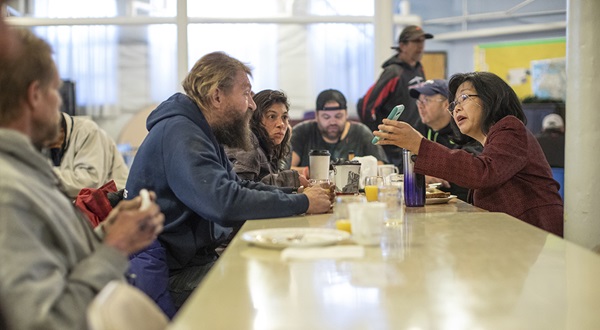Facing the possibility of homelessness can be scary. Becoming homeless, especially as the result of an eviction, can have lasting effects on employment, health, personal credit, and the ability to find a new home.
So is facing debts of any sort you cannot pay.
Or finding transportation when you may have to make a choice between filling your tank and paying your utility bill in times of very hot or very cold weather. Or finding reliable transportation so you can work when you can no longer afford the transportation you currently own. Or finding transportation to another part of the country to make a new start.
Or paying rent when your landlord has recently increased it substantially while all other prices are increasing as well.
There are two primary places you can contact for help.
211 Information and Referral
211 services also often function as the point of entry for enrollment in the Homeless Management Information System (HMIS), operated by the Department of Housing and Urban Development. If you have become homeless, HMIS services can help get you into safe housing.
When you call 211 and you describe yourself as homeless, you may be asked if you are “literally homeless.” If you have been living somewhere not intended for human habitation (on the streets, in a public park, in the woods, or in your vehicle), if you have been living in a homeless shelter, or even if you have been temporarily staying in a motel supported by a voucher from a local church or agency, you qualify as “literally homeless” and are eligible for more support than other categories of homeless people. If you are staying at a friend or relative’s home, or have the option to do so, you may not be considered homeless and may not be eligible for this support.
Local churches
The second place to check is local churches in your area. Most local churches are best poised to help after other community agencies or federal programs have provided the assistance they can. Churches also may be able to provide assistance that others do not cover. For example, many agencies will not provide gasoline cards for fuel to get to your job so you can pay your rent or fees to reconnect utilities, but a local church may be able and willing to do so if they have the funds on hand.
There are two kinds of assistance we have found some Internet sites claiming United Methodist congregations regularly provide that, in fact, they do not. If you are in need of bus tickets, a free car, or car repair assistance, call 211. These are not regular features of the assistance United Methodist congregations offer.
You can find contact information for United Methodist congregations in your area by using the Find a Church website at https://www.umc.org/en/find-a-church. If the church you wish to contact has an average attendance below 120 we recommend that you contact them via their website (if they list one) or click the gray CONTACT CHURCH button on their profile page to reach them by email.
We hope this simple guide will help you if you are facing homelessness, or financial struggles of any kind, or need transportation, or if you want to help someone else who is struggling.
This content was produced by Ask The UMC, a ministry of United Methodist Communications.





